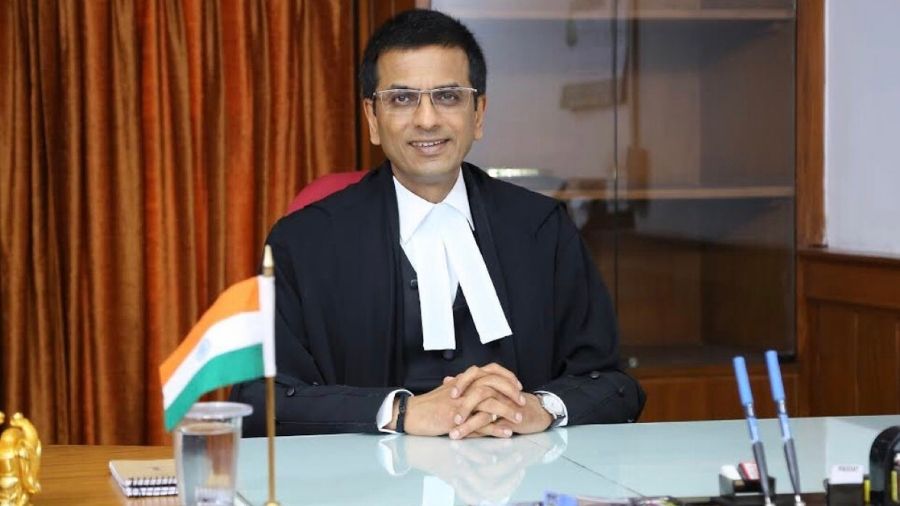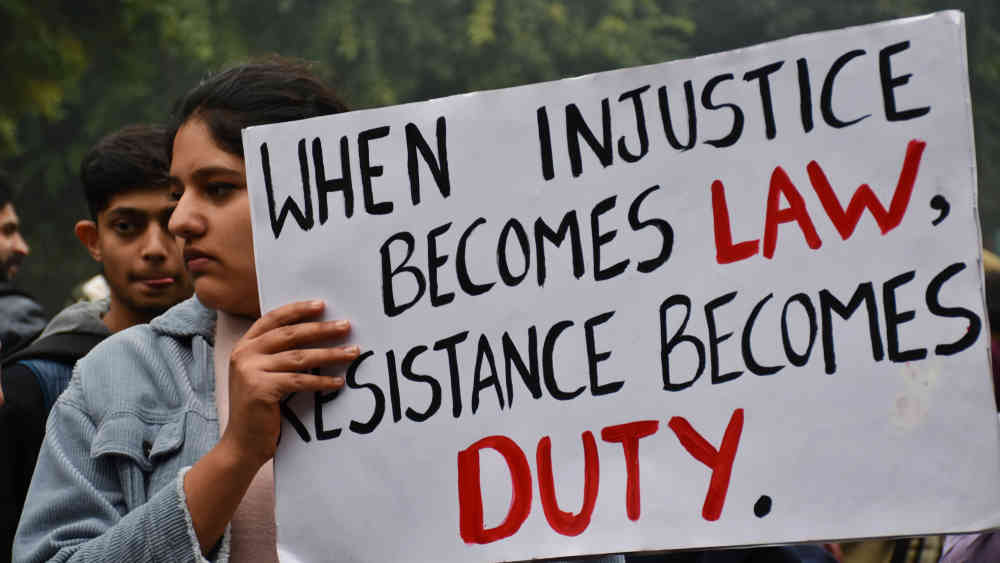Supreme Court judge D.Y. Chandrachud has said criminal laws, including anti-terror legislations, should not be misused to quell dissent or harass citizens.
He asserted that the apex court plays the role of a counter-majoritarian institution whose duty is to protect the rights of socio-economic minorities and those deprived of personal liberty.
“While it is important that prisons are decongested because they are highly susceptible to becoming hot spots for the virus, it is equally important to examine why prisons are congested in the first place. The criminal law, including the anti-terror legislation, should not be misused for quelling dissent or for the harassment of citizens,” Justice Chandrachud told a seminar late on Monday night.
The Supreme Court has decided to examine the colonial-era sedition law under IPC Section 124A, which is being frequently used by the central and state governments to stifle any view critical of the dispensation in power. There has also been a growing tendency in the country to brand as “anti-national” dissenters and people expressing views contrary to those of the government.
Addressing an India-US seminar on the “Role of the Supreme Court in protecting fundamental rights in challenging times”, Justice Chandrachud made the observations while pointing to the various directions the apex court has passed amid the pandemic, including asking the government to offer free vaccines to citizens, supply free rations and provide transport facilities as a matter of fundamental right.
The seminar was jointly organised by the Society of Indian Law Firms and Chartered Institute of Arbitrators and the American Bar Association.
The government has been showcasing the free vaccination drive as Prime Minister Narendra Modi’s gift to the nation. However, the announcement had been made after the Supreme Court had in June described as “prima facie arbitrary and irrational” the Centre’s policy of leaving adults aged below 45 to pay for their Covid-19 jabs while providing for free vaccination of those aged 45 or above.
Justice Chandrachud pointed out that the Centre changed tack after the Supreme Court’s observations.
At the seminar, Justice Chandrachud, who had been on the bench that commented on the vaccination drive, referred to his recent judgment on Republic TV managing director Arnab Goswami’s bail plea in a criminal case registered by the Maharashtra government.
The top court had observed that “our courts must ensure that they continue to remain the first line of defence against the deprivation of the liberty of citizens. Deprivation of liberty even for a single day is one too many. We must always be mindful of the deeper systemic implications of our decisions”.
Vaccine prod
Justice Chandrachud noted on Monday night that the Centre had earlier introduced a vaccination policy under which it had been inoculating people above 45, healthcare and other frontline workers for free. People in the 18-44 age group had to go to state government vaccination centres or private hospitals for jabs for which they had to shell out money. The people in this age group were also required to book appointments digitally.
Justice Chandrachud said the Supreme Court could not remain a silent spectator although it was cautious that it could not transgress into the domain of policy-making and usurp the role of the executive.“However, in a humanitarian crisis, it (the court) could not stand as a silent spectator. It adopted a ‘bounded deliberative approach’ seeking justifications from the government for its policy, which it reiterated must be bound by a human rights framework which in this case implicated the right to life under Article 21 and the rights to equality under Article 14 of the Constitution,” the judge said.
“The Supreme Court observed that prima facie, the Union government’s policy of differential pricing where a certain class of citizens is given free vaccines and another class has to pay for vaccines or depend on the financial wherewithal of each state to avail (themselves of) free vaccines was arbitrary and inconsistent with the right to life (which includes the right to health) under Article 21 of the Constitution,” Justice Chandrachud told the seminar.
“We noted that the social strata of the 18-44 age group also comprises persons who belong to underprivileged and marginalised groups. Such persons may not have the ability to pay for essential vaccines, which is a public good in a pandemic. Hence, we noted that prima facie, a rational policy would require the Union government to take up the responsibility of procuring vaccines and negotiating with the vaccine manufacturers as a monopolistic buyer, and subsequently allocate the vaccines to the states for distribution to people free of cost,” he added.
He noted that the apex court had prima facie held that the government’s then policy could have serious implications on the fundamental right to equality and the right to health of those in the 18-44 age group.Justice Chadrachud pointed out that following the Supreme Court’s observations, “…the Union government thereafter revised its policy, bearing the responsibility of procuring 75 per cent of the vaccines and administering them free of cost to persons above the age of 18 years, while also capping the price that could be charged for the remainder 25 per cent of the vaccines being procured by private hospitals from manufacturers. Further, the Union government also allowed on-site registration and vaccination of persons in the age group of 18-44 years along with digital registration…”
Role of ‘guardian’
Justice Chandrachud said the court plays the role of a counter-majoritarian institution and it is its duty to protect the rights of socio-economic minorities.
“As the guardian of the Constitution, it has to put a break where executive or legislative actions infringe on fundamental human rights. Even in the context of the separation of powers, the scheme of checks and balances through supervision results in a certain degree of interference by one branch into the functioning of the other,” Justice Chandrachud said while referring to criticism over alleged judicial overreach in executive functioning.
He said the Supreme Court had used various methods in holding the executive and legislature accountable, whether by striking down a law and ruling on the ground of unconstitutionality or by intervening in certain matters of policy or through a deliberative approach of making the other two arms of governance aware of the constitutional implications of the decisions at hand.
“The Supreme Court has to act in furtherance of its role as sentinel on the qui vive (on the alert) and respond to the call of constitutional conscience and it is this role that prompts it to address the challenges of the 21st century, ranging from the pandemic to the rise of intolerance, features which we find across the world,” Justice Chandrachud said.
US jurisprudence
The judge said the Indian Supreme Court had often relied on the comparative jurisprudence of the US Supreme Court, encouraging a trans-national judicial dialogue.
For instance, in the Navtej Johar v. Union of India, where the Indian Supreme Court decriminalised same-sex sexual intercourse, Justice Chandrachud said that while delivering the verdict he had relied on comparative legal developments from the UK, European Court of Human Rights and the celebrated case of Lawrence v. Texas of the US to hold that there was a growing liberal consensus towards equal treatment of LGBTQ rights and India could not be left behind in this transformational vision.
Similarly, in the Puttuswamy v. Union of India (Aadhaar card case), where the Indian Supreme Court upheld the right to privacy as a guarantee under the Constitution, specific comparison was made with the US, Justice Chandrachud said.












